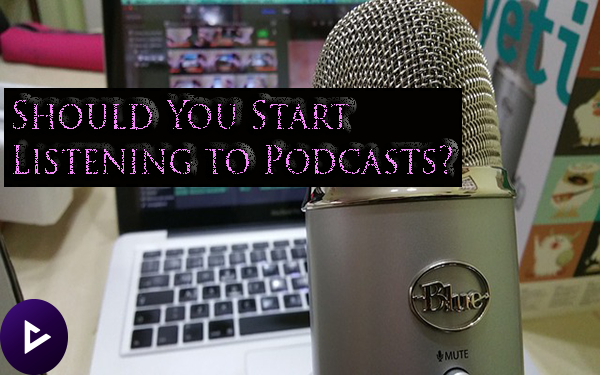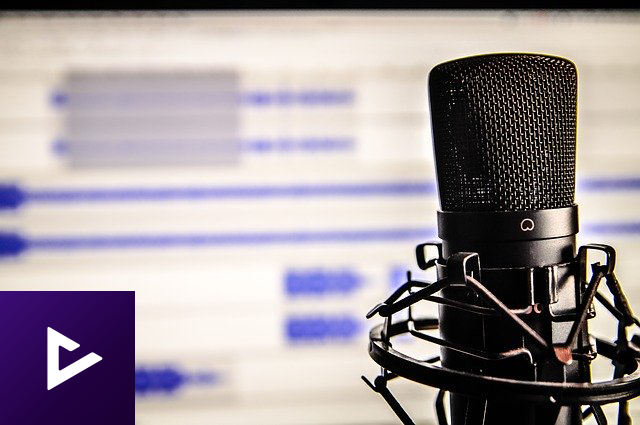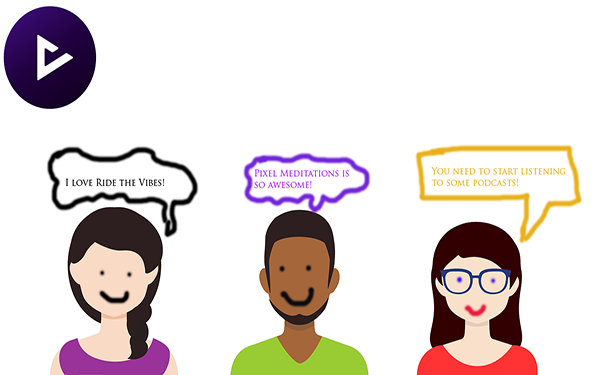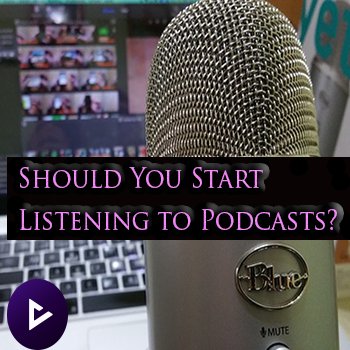Do you listen to podcasts already?
You can listen to podcasts anywhere, anytime.
Read this blog to get all the details
What is a Podcast?
Podcasting is huge. But what is it, and should you start listening to them? Podcasts have been on the rise since the mid-2000s, and they have advantages that other types of media(1) like blogs, television, and videos don’t offer.
This blog is going to run you through what a podcast is, tell you why they are so popular, and whether or not you should start listening.
So, what is a podcast? Simply put, it’s a digital audio file that is put on the internet. Listeners can download this file on their computers or phones. Often, like television shows, podcasts are episodic, meaning that episodes are released on a regular basis(2). Luckily, most podcast apps allow listeners to subscribe, which means new episodes will automatically get downloaded onto their devices.
Is a Podcast Actually Different from Radio or TV?
Most podcasts are just mp3 files and don’t usually incorporate(3) videos. While episodes may be uploaded to YouTube, the video usually just consists of talking heads or a static image.
Secondly, podcasts are optimized for long-form(4) conversations. This means people can have longer conversations about a topic (or topics) without time constraints or interruptions from commercials (though many podcasts feature ads).
Lastly, podcasts are accessible wherever you go and aren’t time-sensitive. You can listen to a podcast episode on your commute, while you are exercising, or even as you are washing the dishes and so on. This is one of the biggest advantages to podcasts. Since you can download the episodes, you can listen to them whenever you want, whereas radio programs are likely to be scheduled. 
A Brief History of Podcasts
Podcasts are sent to the internet via something called an RSS feed. RSS feeds were created in 2000, and the first RSS feed was put online in 2003.
In 2005, Apple added podcasts to iTunes, and they were the ones who really pushed podcasts into the mainstream(5). They also promoted people creating their own shows with Apple-owned software like GarageBand and QuickTime Pro.
Nowadays, almost every podcast has to run through Apple if they want to gain listeners and get noticed. Most apps (which are called podcatchers) take the RSS feeds directly from Apple and iTunes. It is worth noting that Spotify is becoming a major player and has invested millions of dollars into making podcasts a big part of their site/app. So Apple will have fierce competition.
Why Do People Enjoy Listening to Podcasts?
Podcasts have exploded, and for good reason. There are tons of podcasts to choose from, and you can find a show about any topic(6) that interests you. Want a political podcast? Check. Interested in technology? Check. Even individual books, movies, and video games often have podcasts.
By using Google or just searching for keywords related to a topic that interests you, you can find a podcast worth listening to. On top of that, listening to most podcasts is free, so you don’t need to worry about having to pay a monthly subscription or spending a lot of money.
It’s not just a great deal for listeners though: podcast creators can also make their own show with just a few basic pieces of hardware(7). Though some podcast setups are very expensive, and professional podcasters will probably have to invest in pricier equipment, you really just need a microphone and a computer to get your podcast up and running.

Podcasts vs. Blogs
Blogging and podcasts are popular, and a lot of content creators opt to use both. Blogs are read while podcasts are listened to.
Both blogs and podcasts tend to focus on niches(8) or particular topics. For instance, someone might create a travel blog as well as host a podcast about interesting travel stories. Another example could be that someone writes a blog about hiking trails in their countries while running a podcast about the outdoors.
Podcasting is a more modern form of media. They are still on the rise, and podcasting is growing. Blogging is still popular, but the general atmosphere and excitement surrounding blogging have seemed to die down. Podcasts may have a bigger future than blogging, though, that is speculative(9).
Should You Listen to Podcasts?
I think everyone can benefit from podcasts, but there is still a large amount of the population that doesn’t consume them.
If you are someone who spends a lot of time commuting, exercising, or has a lot of dead time, podcasts might be the perfect option for you. They are often more accessible than reading a book or watching a video, and you can take them wherever you go.
If you want to listen to something that is less scripted(10) and more conversational, podcasts are arguably the best choice. Since most podcasts are created by knowledgeable or passionate hosts, they don’t have a company or a boss that is telling them what to do or what to say. This means that podcasts come with an authenticity that may be lacking in a lot of other mainstream media (on the flip side, it also means podcasts vary significantly in terms of quality).
Finally, one of my favorite aspects of podcasts is that they have no time limit. A podcast can be anywhere from 10 minutes to a few hours long, so they can fit into anyone’s schedule.
Recommendations
If you’ve never checked out a podcast, I recommend downloading a podcast app on your phone or computer and looking for shows about topics that interest you. It looks like podcasts are here to stay, and they seem to be getting more and more popular.
Here are a couple of podcasts to check out.
You can check out Ride the Vibes, which is owned by VoiceTube inc. and hosted by Steve and Winnie.
I also have my own podcast (which will be getting weekly episodes soon) called the Pixel Meditations.
Why The Government Is Interested In Your Spotify Data – Cheddar Examines
Vocabulary
1. media (n.)
Def. the main ways that large numbers of people receive information and entertainment, that is television, radio, newspapers and the Internet
Ex. Podcasts are a very modern form of media.
2. basis (n.)
Def. a fixed pattern or system
Ex. My grandmother’s reading group has been meeting on a regular basis for over a decade.
3. incorporate (v.)
Def. to unite or work into something already existent so as to form an indistinguishable whole
Ex. He wanted to find a way to incorporate music into his comedy act.
4. long-form (adj.)
Def. covering a subject at much greater length and in much greater depth than a standard news article
Ex. Long-form articles have more information, but they take longer to read,
5. mainstream (n.)
Def. the ideas and opinions that are thought to be normal because they are shared by most people
Ex. The Earth is not flat. It has been known to be spherical by the mainstream for a long time.
6. topic (n.)
Def. a subject that you talk, write or learn about
Ex. You can study whatever topic interests you.
7. hardware (n.)
Def. the machines and electronic parts in a computer or other electronic system
Ex. Typical podcasting hardware includes a computer, a microphone, and an audio interface.
8. niche (n.)
Def. a specialized market
Ex. We found a cool niche for our podcast. We talk about animal species found in North America.
9. speculative (adj.)
Def. based on guessing or on opinions that have been formed without knowing all the facts
Ex. It is still speculative whether or not podcasts will make Spotify a lot of money or not.
10. scripted (adj.)
Def. the written text of a stage play, screenplay, or broadcast
specifically: the one used in production or performance
Ex. The show was too scripted, so we all sounded fake.
Photos
Microphone-audio-computer by TheAngryTeddy
illustrations/avatar-clients-customers-icon by coffeebeanworks
